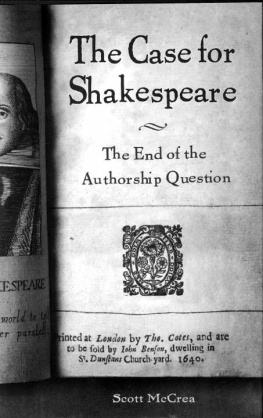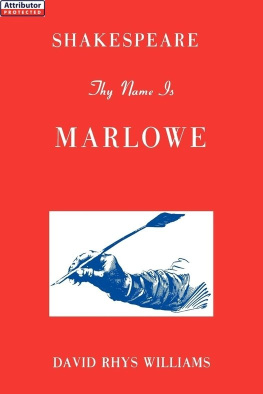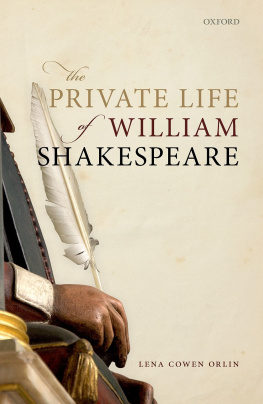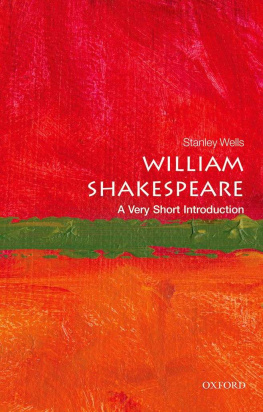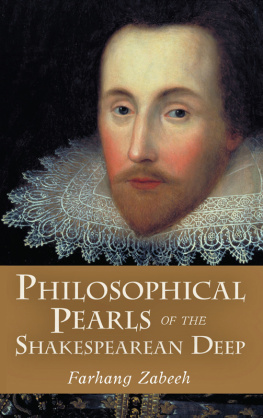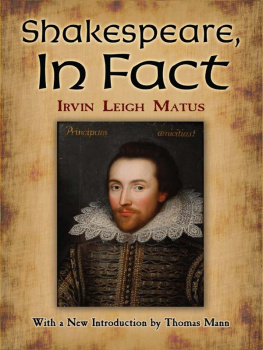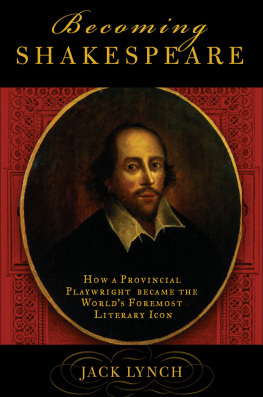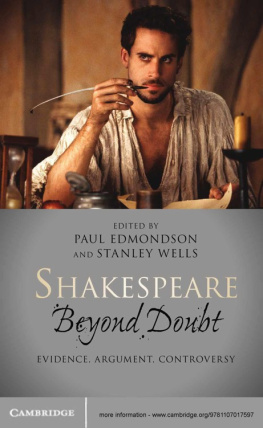Scott McCrea - The Case for Shakespeare: The End of the Authorship Question
Here you can read online Scott McCrea - The Case for Shakespeare: The End of the Authorship Question full text of the book (entire story) in english for free. Download pdf and epub, get meaning, cover and reviews about this ebook. year: 2005, publisher: Praeger, genre: Detective and thriller. Description of the work, (preface) as well as reviews are available. Best literature library LitArk.com created for fans of good reading and offers a wide selection of genres:
Romance novel
Science fiction
Adventure
Detective
Science
History
Home and family
Prose
Art
Politics
Computer
Non-fiction
Religion
Business
Children
Humor
Choose a favorite category and find really read worthwhile books. Enjoy immersion in the world of imagination, feel the emotions of the characters or learn something new for yourself, make an fascinating discovery.
- Book:The Case for Shakespeare: The End of the Authorship Question
- Author:
- Publisher:Praeger
- Genre:
- Year:2005
- Rating:3 / 5
- Favourites:Add to favourites
- Your mark:
The Case for Shakespeare: The End of the Authorship Question: summary, description and annotation
We offer to read an annotation, description, summary or preface (depends on what the author of the book "The Case for Shakespeare: The End of the Authorship Question" wrote himself). If you haven't found the necessary information about the book — write in the comments, we will try to find it.
While gaps in the biographical record for William Shakespeare continue to confound literary scholars, McCrea here concludes that he was, indeed, the playwright and poet we have always thought him to be. This literary forensics case follows the trail of evidence in the historical record and in the plays and poems themselves. It investigates the counterclaims for other authors and the suppositions that the real author of the works must have been a soldier, a scholar, a lawyer, a courtier, and a traveler to Italy. In spirited and fascinating detail, McCrea carefully takes apart the case for other authors and proves the case conclusively.
While gaps in the biographical record for William Shakespeare of Stratford-upon-Avon continue to confound literary scholars, McCrea here concludes that he was, indeed, the playwright and poet we have always thought him to be. This literary forensics case follows the trail of evidence in the historical record and in the plays and poems themselves. It investigates the counterclaims for other authors and the suppositions that the real author of the works must have been a soldier, a scholar, a lawyer, a courtier, and a traveler to Italy. In spirited and fascinating detail, McCrea carefully takes apart the case for other authors and proves the case conclusively.
Unlike other books that make the case for one or another candidate for the real Shakespeare, this book makes the case for the Bard of Avon even as it considers the alternative arguments for other authors and presents the evidence against them. Special attention is paid to the leading contender, Edward de Vere, the Earl of Oxford, but like other conspiracy theories, this one is put to rest through a detailed combing of the clues and a convincing presentation of the facts. In the end, readers will be reassured as to the identity of the real Shakespeare, who was, and is, the glovers son from Avon.
Scott McCrea: author's other books
Who wrote The Case for Shakespeare: The End of the Authorship Question? Find out the surname, the name of the author of the book and a list of all author's works by series.

